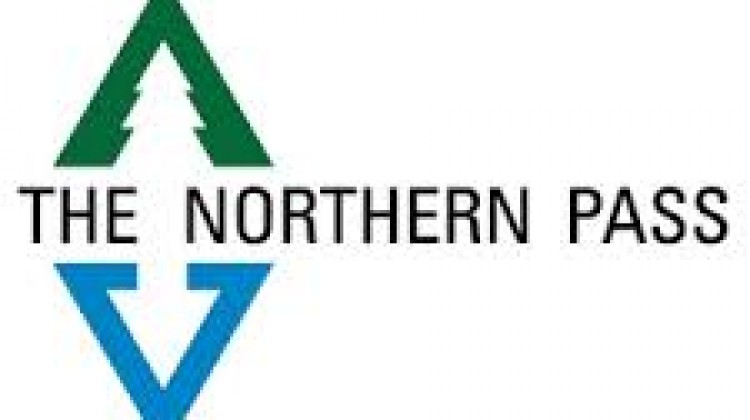Northern Pass’s application to build a 192-mile transmission line from Pittsburg to Deerfield is incomplete because the applicants are still studying exactly where the buried portions will be, according to Senior Assistant Attorney General Peter Roth.
Roth, as Counsel for the Public, filed a motion with the state Site Evaluation Committee asking that Northern Pass be ordered to amend its application to include exact details of where the 60 miles of buried line will be.
The rest of the line is scheduled to be built overhead angering some intervenors and critics who either want the massive project to be buried or that it not be built at all. Joint applicants Northern Pass and Eversource Energy insist bringing hydro-electricity from Canada to the New England grid through New Hampshire will be a boon to the state.
Northern Pass’s response to Counsel’s data requests indicated the exact alignment of the proposed transmission line hasn’t yet been determined, Roth wrote.
“Consequently, the application is not complete and will not be complete until the applicants identify the exact alignment of the 60 miles of the underground portion of the transmission line,” Roth said.
The motion also asks the SEC subcommittee that will ultimately approve or deny the project to compel Northern Pass to complete its full data requests and to extend intermediate deadlines if need be.
One of two areas where the project is proposed to be built underground involves about 8 miles in Coos County along Route 145 and local roads in Clarksville and Stewartstown. The other is about 52 miles in Grafton County along Route 302, Route 18, Route 116, Route 112 and Route 3, the motion states.
Buried portions will pass through the center of Franconia, Sugar Hill, Easton, Woodstock and Plymouth, Roth said.
“The underground transmission line will pass, often in close proximity to numerous homes, barns, historic burial grounds, rivers and streams, ponds and wetlands, mature stands of trees, and important scenic areas such as Kinsman Notch and the Beaver Pond scenic picnic area and Appalachian Trail crossing,” Roth wrote.
The Counsel for the Public is appointed by the attorney general as a party to the legal proceeding to “represent the public in seeking to protect the quality of the environment and in seeking to assure an adequate supply of energy.”
Northern Pass spokesman Martin Murray declined to comment on Roth’s motion.
“This is a formal, adjudicated process and we will file appropriate responses to this and/or other filings in a timely manner,” Murray said.
In the meantime, the technical sessions in which intervenors can informally question Northern Pass experts are scheduled to start Sept. 6 in Concord and run through the month during 11 session days.
The evaluation subcommittee must make its final decision by Sept. 30, 2017. Northern Pass must also obtain federal permits to build the transmission line.
Grafton County Commissioners also filed a motion suggesting later intermediate deadlines, according to Michael Iacopino, the evaluation committee’s attorney.
“There have been no motions filed to extend the deadline of Sept. 30, 2017, for the SEC to decide if the project can be built,” said Iacopino.
Two state agencies – the Department of Transportation and Department of Environmental Services have requested more time past their deadline to finish their recommendations because Northern Pass is still providing them with data. About half of the two dozen intervenor groups have filed motions to compel data from Northern Pass.
Whether delays could impact the final decision date is not known. “I can’t predict what would happen if some of these intermediate deadlines slip,” Iacopino said.
Northern Pass has 10 days from the time the motions were filed to object, Iacopino said, so most would be due by Thursday. It will then be up to subcommittee chairman Martin Honigberg to decide the motions.
Iacopino said Counsel for the Public recognizes that surveying and other work is continuing to determine locations on the underground portions of the line. The outstanding questions involve matters such as whether the line would be buried on the east or west side of roads, he said.
It’s hard to say if the technical sessions will go ahead in two weeks without all of the data being sought by intervenors being provided.
“I don’t know what the rulings will be,” Iacopino said. “We haven’t seen the objections.”
Northern Pass’s application to build a 192-mile transmission line from Pittsburg to Deerfield is incomplete because the applicants are still studying exactly where the buried portions will be, according to Senior Assistant Attorney General Peter Roth.
Roth said he appreciates that the size and scope of the project is unprecedented.
Still, Counsel for the Public, intervenors and the public cannot assess the proposed transmission line’s impact on homes, commercial buildings, emergency services, traffic, businesses, rivers and historical resources until Northern Pass identifies the exact location of the underground transmission lines, Roth wrote.
“These considerations are important throughout the 60 miles of the underground transmission line, and they are particularly acute in busy, congested areas such as the center of Franconia, Woodstock and Plymouth, as well as where the proposed transmission line crosses under Route 3 and the Connecticut River in Clarksville and on the single-lane gravel road in Stewartstown,” Roth wrote.





